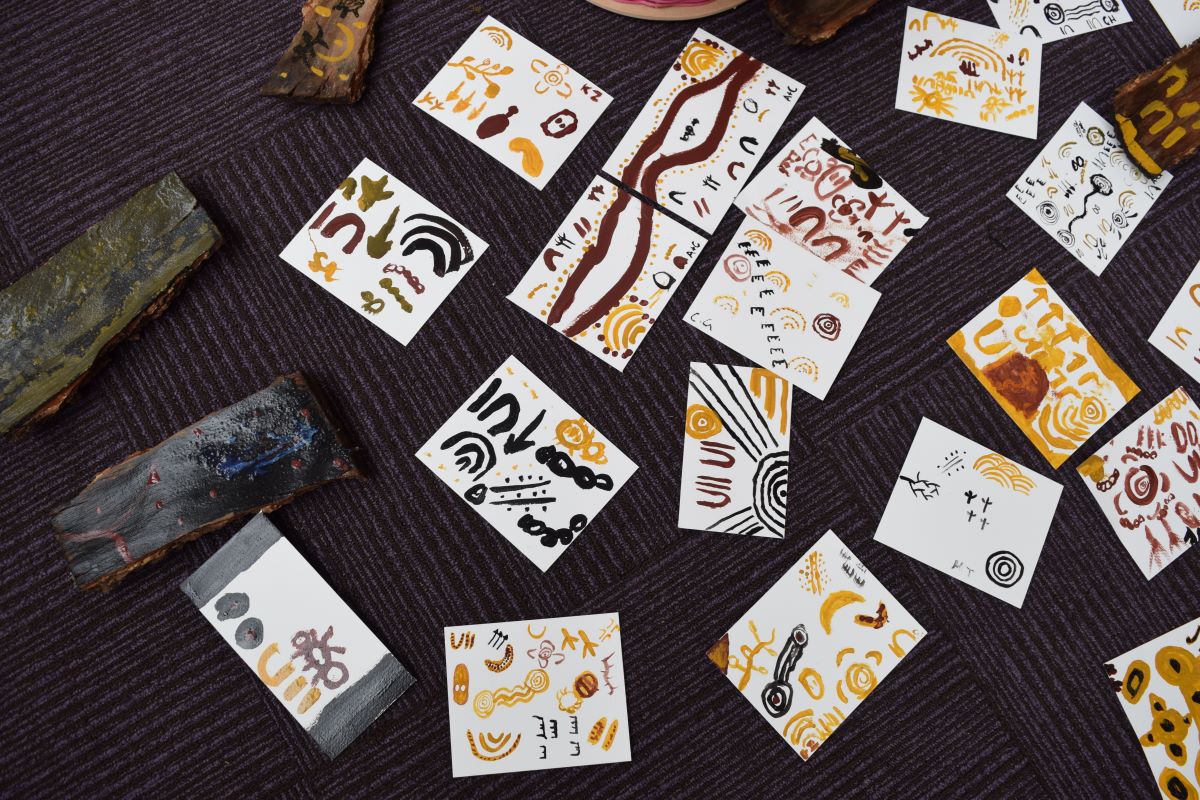The Wesley College community’s commitment to reconciliation can be seen in both subtle and more tangible ways. In the classroom, developing an understanding of the concept, history and progress of reconciliation is an important part of continuing the reconciliation journey. One of the goals of our Reconciliation Action Plan is to provide more opportunities for students to learn about reconciliation.

For our Year 4 students at the Glen Waverley Campus, this has taken the form of a unit of inquiry into the First Nations people and their culture, which they completed in Term 4 2023.
Junior School teachers Clare Polubinski and Jackson Matthews brought this learning to life in a variety of ways, including through a trip up to the Senior School for a workshop with Head of Art, Michele Maher in our art studios.
Students learnt about the various styles of Aboriginal Art around Australia and were introduced to the dot paintings of the central desert region and their many signs and symbols, as well as the ochres (a natural pigment) that are used in the Kimberley region and artists who paint on bark at the ‘Top End’ of Australia.
The Year 4 students were fascinated by the different media used by the various language groups, such as acrylic paint, ochres and plant fibres, and how those groups use them to tell their own Dreamtime stories. Michele then led students in a workshop, where they experimented with ochre paints to paint symbols onto paper and bark.
This practical workshop introduced students to another way of learning about First Nations people, and their methods of expression. The Year 4 students took ochres back to their classroom to continue their explorations after the workshop, and their discussions.
The International Baccalaureate Primary Years Program (PYP), which students undertake from 3-year-old early learning to Year 6, is inquiry-based learning and is transdisciplinary in nature. Weaving together the six key themes; who we are, where we are in time and place, how we express ourselves, how the world works, how we organise ourselves and sharing the planet, allows our young people to expand their inquiry across a range of subjects, enabling deep exploration and linking of classroom learning to the wider world. This opportunity to learn about and connect with our journey towards reconciliation fosters in our young people respect, empathy and a sense of responsibility for the important role they play in reconciliation.
Michele Maher's workshop for Year 4 students on Aboriginal art

Kevin with a bark artwork

Students learned about the different methods of expression within Aboriginal art

